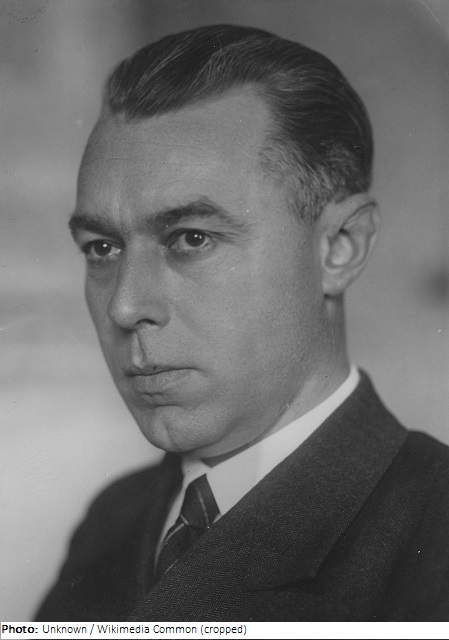Werner Beumelburg

Biographical information
| Roles | Referee |
|---|---|
| Sex | Male |
| Full name | Werner•Beumelburg |
| Used name | Werner•Beumelburg |
| Born | 19 February 1899 in Traben-Trarbach, Rheinland-Pfalz (GER) |
| Died | 9 March 1963 in Würzburg, Bayern (GER) (Died between 8 and 9 March 1963.) |
| NOC |  Germany Germany |
Biography
Werner Beumelburg served in an engineering unit in World War I, first as a cadet and later as an officer. He took part in the battle of Verdun and was awarded the Iron Cross. After the war, he studied history and political science in Köln (Cologne). From 1921, he worked at the Reichswehr Ministry as editor-in-chief of the Deutsche Soldatenzeitung (German Soldiers Newspaper). Later, he became the political editor of the right-wing conservative Deutsche Allgemeine Zeitung and the Düsseldorfer Nachrichten. He then became a freelance writer and eventually moved to Berlin in 1932.
Within the various intellectual currents of the Conservative Revolution, Beumelburg was, like for instance Ernst Jünger, one of the representatives of “soldierly nationalism”, which arose from the experience of the front line of World War I. His first book, Die gestohlene Lüge (The Stolen Lie) from 1921, was a refutation of Germany’s guilt at the outbreak of World War I and the expression of the expectation of a “leader” in the form of a science fiction novel. In the following years, he wrote four more books about World War I, some under the pseudonym of Mc Gorgo. Strongly opposing the Weimar Republic, he wrote increasingly anti-democratic, but at the time quite popular books.
From 1933, Beumelburg directed the book collection Schriften an die Nation. Later that year, he was one of the 88 writers who signed the pledge of loyal allegiance to Adolf Hitler. He wrote about the Reich Labor Service, the annexation of Austria, and the mission of the Condor Legion during the Spanish Civil War and introduced Anti-Semitism in his works. During World War II, as an air force officer, he was responsible for Hermann Goering’s war diary. However, in the face of impending defeat, he allegedly distanced himself from the Nazi regime.
Beumelburg was arrested by the American army in 1945 and detained in the former concentration camp of Dachau. After his release, he lived near Munich as a farmer. After World War 2, he continued to publish but had only limited success, remained politically discredited, and committed suicide in 1963. In East Germany, later GDR, his works were banned.
Referee
| Games | Sport (Discipline) / Event | NOC / Team | Phase | Unit | Role | As | |
|---|---|---|---|---|---|---|---|
| 1936 Summer Olympics | Art Competitions |  GER GER |
Werner Beumelburg | ||||
| Literature, Dramatic Works, Open (Olympic) | Final Standings | Judge | |||||
| Literature, Epic Works, Open (Olympic) | Final Standings | Judge | |||||
| Literature, Lyric Works, Open (Olympic) | Final Standings | Judge |
Special Notes
- Listed in Olympians Who Committed Suicide (Committed suicide being politically discredited after the fall of the Nazi regime.)